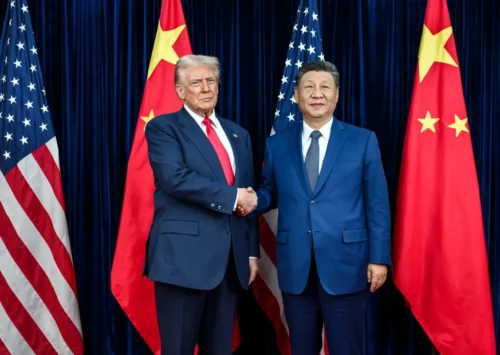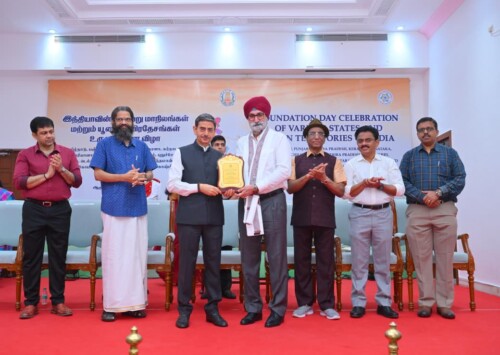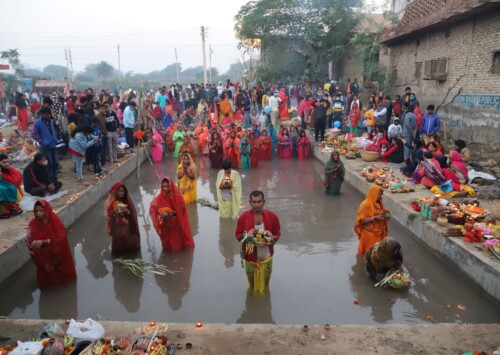70 pc waste pickers in Delhi faced severe income loss: PPC-PIC report
Pandemic leaves Delhi’s waste pickers in crisis
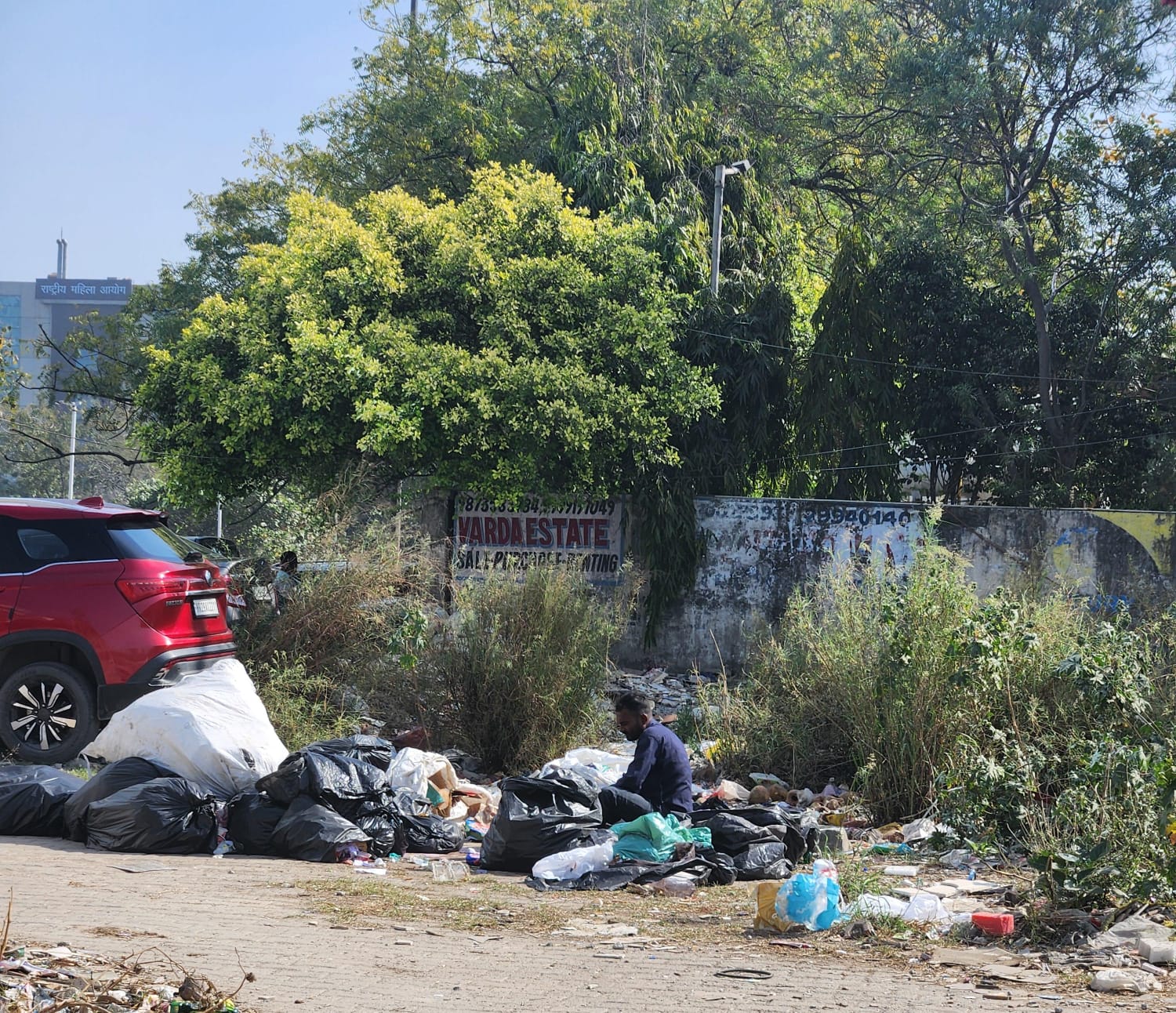
India’s waste management system relied on an informal workforce of an estimated 1.5 to 4 million waste pickers (Photo: Masrat Nabi)
A staggering 73 pc of Delhi’s waste pickers suffered severe income loss during the pandemic, reveals a new report by the People’s Commission and Public Inquiry Committee (PC-PIC), exposing how government neglect and rising privatisation have pushed this vital workforce to the brink of survival.

India’s waste management system relied on an informal workforce of an estimated 1.5 to 4 million waste pickers (Photo: Masrat Nabi)
For decades, waste pickers have been the invisible backbone of India’s waste management system, sifting through landfills, streets, and bins to collect recyclables, reducing the environmental burden of the country’s ever-growing waste problem. Delhi alone has an estimated 200,000 waste pickers, who play a crucial role in keeping the city’s waste crisis in check. But when the Covid-19 pandemic swept across India, these frontline environmental workers faced one of their greatest battles yet, not against the virus itself, but against economic devastation, government apathy, and the rising tide of privatisation that threatened their already precarious existence.
Among those hardest hit was Rakhi Devi , a 38-year-old waste picker from Delhi’s Jahangirpuri area. For nearly two decades, she has spent her days rummaging through garbage dumps to collect plastics, metals and paper, basically materials that she could sell to recyclers to earn a meagre livelihood. However, during the lockdown, her earnings disappeared overnight. The once-bustling streets were deserted, waste collection routes were taken over by private companies, and local scrap dealers refused to buy from informal waste pickers due to the fear of contamination. With no savings and no government aid, she had no choice but to take loans from local moneylenders just to feed her family.
“During the lockdown, everything collapsed overnight. The streets were deserted, and there was no waste to collect. The scrap dealers shut their shops, and suddenly, the only work we had ever known was gone. We had no savings, no ration, and no support from the government. My husband and I went hungry just so our children could eat once a day. Some days, even that was not possible. We begged for work, but no one wanted to come near us because they thought we carried the virus. It felt like we had become invisible, no one cared if we lived or died,” Devi tells Media India Group.
She says that their suffering didn’t end when the lockdown was lifted.
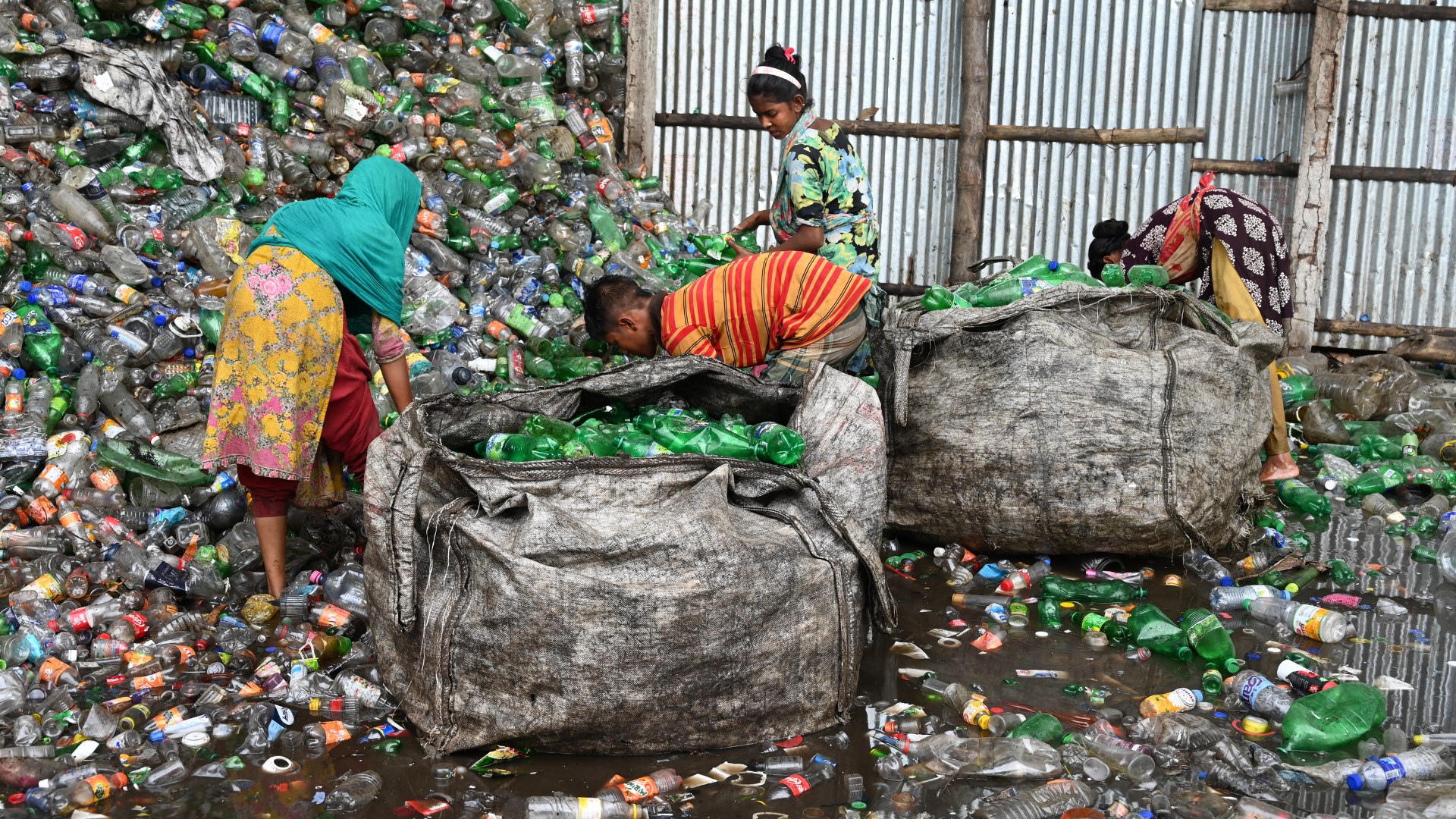
The government used the lockdown to push waste pickers out of the waste economy, they had to pay bribes just to collect waste
“When things reopened, we thought we could go back to work, but the waste had already been taken over by private companies. The garbage trucks that used to come late or irregularly were now running on fixed schedules, controlled by big firms. We were shut out of landfills, and we had to pay just to collect waste. How could we pay when we had nothing left? Many of us fell into heavy debt just to survive, and even today, we are struggling to recover from those losses. The government didn’t just ignore us during Covid-19, they used it as an excuse to erase us from the system,” Devi adds.
Devi’s story is not an isolated one. A recent report, A Governance Landfill: The Tragic Story of Capital’s Waste-Picking Community During the Pandemic, published by the People’s Commission and Public Inquiry Committee (PC-PIC), reveals the widespread suffering faced by Delhi’s waste-picking community during the crisis. According to the report, more than 73 pc of waste pickers in Delhi suffered severe income loss during the pandemic, forcing many into debt and extreme financial distress.
According to the report, the garbage trucks seen are not run by the municipality anymore they are owned by private companies. The government used the lockdown to push waste pickers out of the waste economy, they had to pay bribes just to collect waste, and sometimes they were forced to pay INR 10,000 just to dump it.
“The government is not trying to erase poverty, they are trying to erase us,” says Devi.
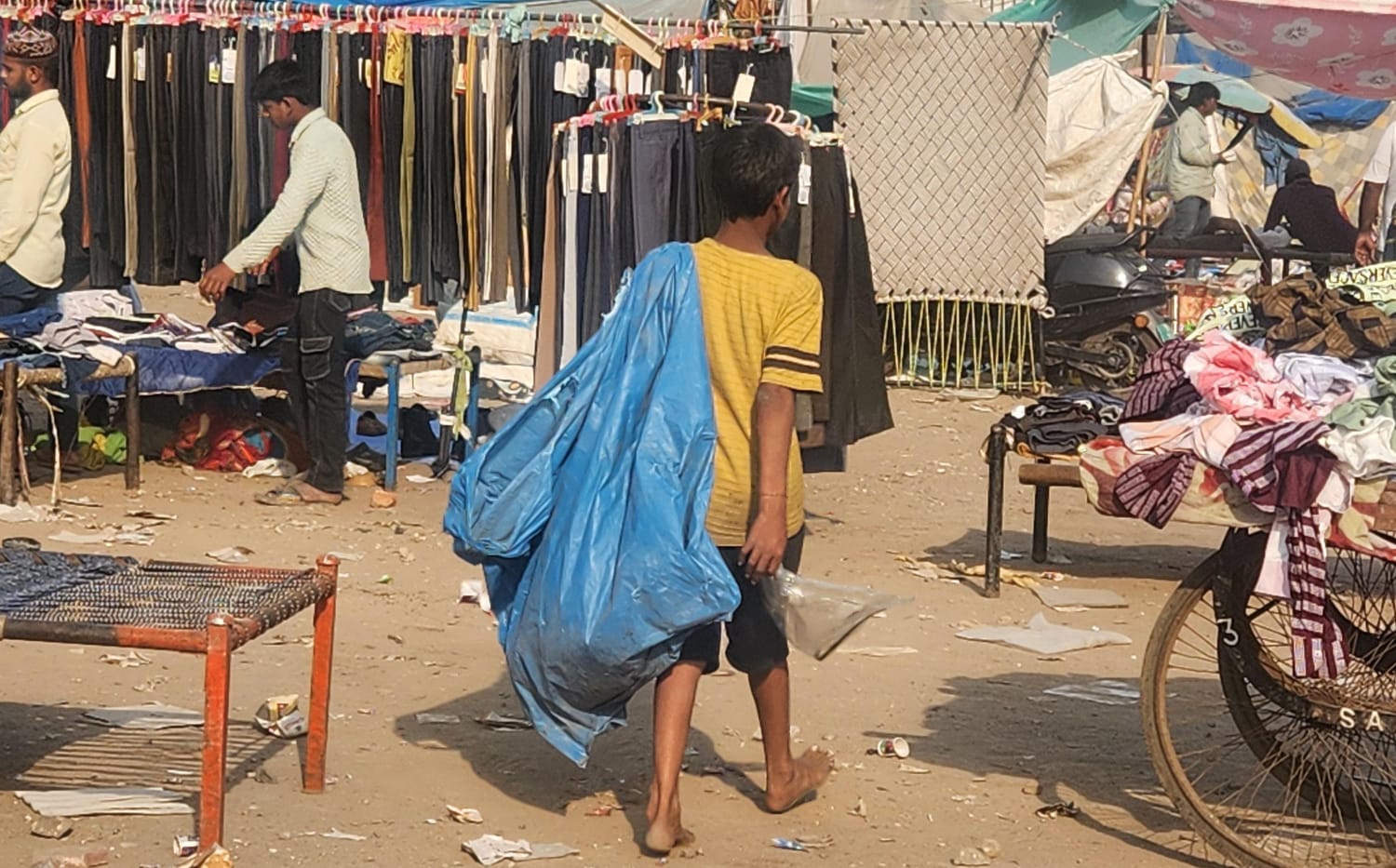
India’s waste management system relied on an informal workforce of an estimated 1.5 to 4 million waste pickers (Photo: Masrat Nabi)
For years, India’s waste management system relied on an informal workforce of an estimated 1.5 to 4 million waste pickers, who manually sort and recover recyclables, diverting an enormous volume of waste away from landfills. But as waste becomes a commercial resource in the growing USD 14 billion waste management industry, informal waste pickers find themselves pushed to the margins. The increasing involvement of private firms in waste collection and disposal is not only threatening their livelihoods but also disrupting established recycling systems.
The International Labour Organisation (ILO) defines the informal waste sector as “individuals or small and micro-enterprises that intervene in waste management without being registered and without being formally charged with providing waste management services.” Despite their unrecognised status, these workers contribute significantly to environmental sustainability, recycling over 20 pc of India’s total waste, far more efficiently than many formal waste management firms.
The PC-PIC report also highlights the educational setbacks suffered by waste-picking families during the pandemic. With schools closed and no access to online education, the children of waste pickers, many of whom were already on the brink of dropping out, were forced into informal labour to support their struggling families.
“My son used to go to school. But during the lockdown, he started working at a scrap shop to help us survive. Now, even though schools have reopened, we cannot afford to send him back. We are stuck in this cycle, and no one is helping us break free,” Amit Yadav, a waste picker from Sarita Vihar in south Delhi, tells Media India group.
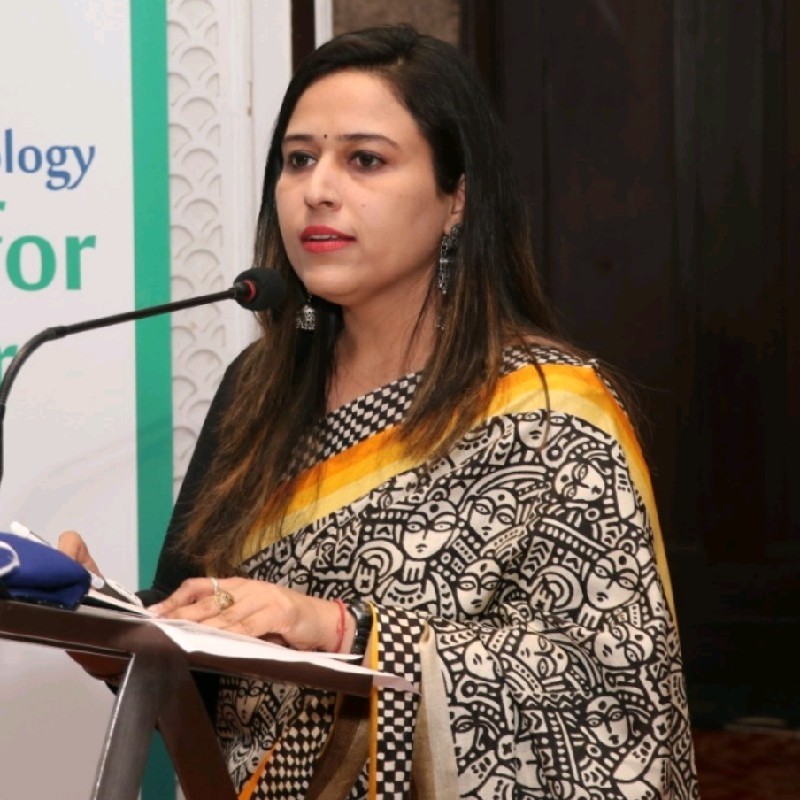
Prerna Sharma
Despite their indispensable role in India’s waste ecosystem, the government has failed to provide waste pickers with adequate legal recognition, social security, or economic support. Organisations advocating for their rights argue that policies promoting formalisation must include waste pickers rather than exclude them.
“Privatisation is not the solution. Waste pickers are the original recyclers of India. Instead of pushing them out, the government should be integrating them into municipal waste management systems, offering fair wages, protective gear, and access to health care and education,” Prerna Sharma, an environmental activist from Delhi, tells Media India Group.
As India’s waste management industry expands, the fate of its informal waste pickers hangs in the balance. Without intervention, their displacement not only deepen their financial struggles but also weaken India’s recycling framework, leaving the environment to pay the ultimate price. For now, waste pickers continue to fight for their right to work, hoping that their contributions to the city’s sustainability will finally be acknowledged before it is too late.

